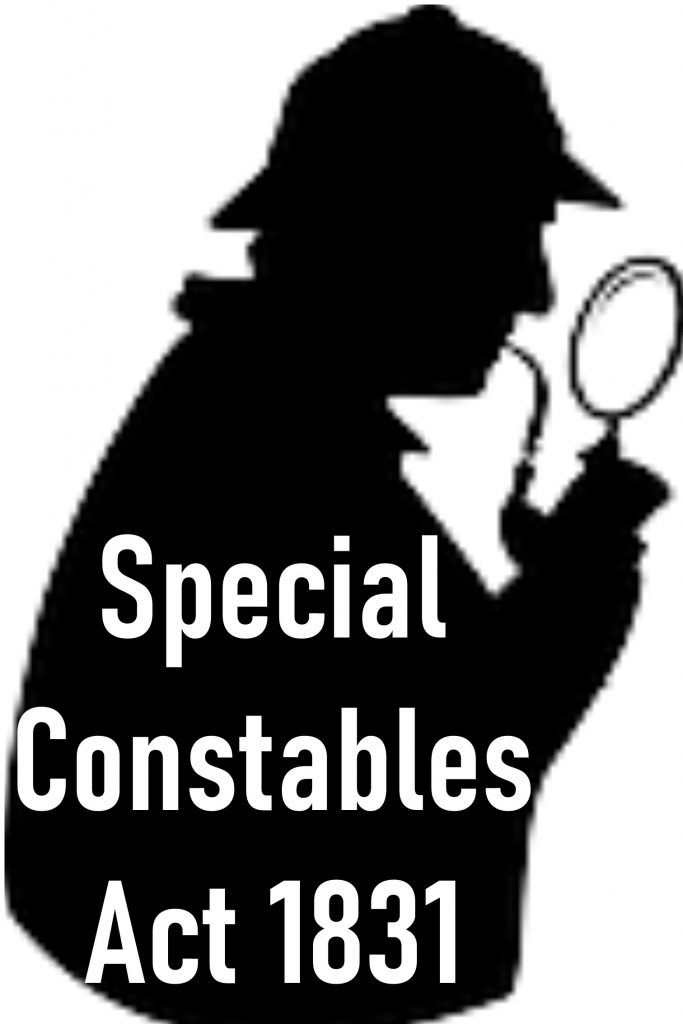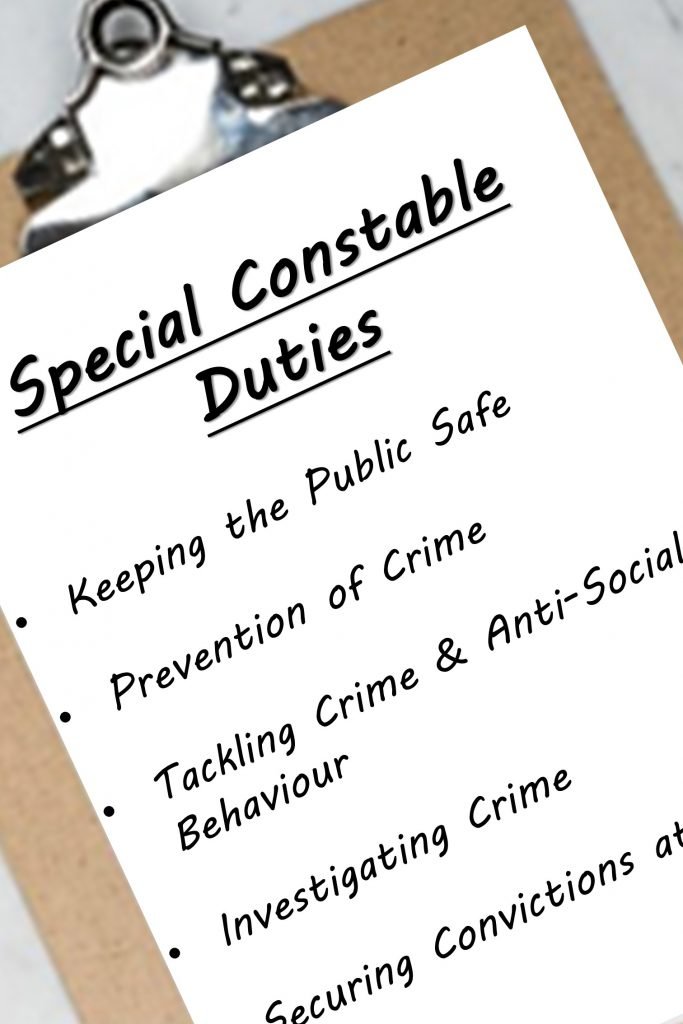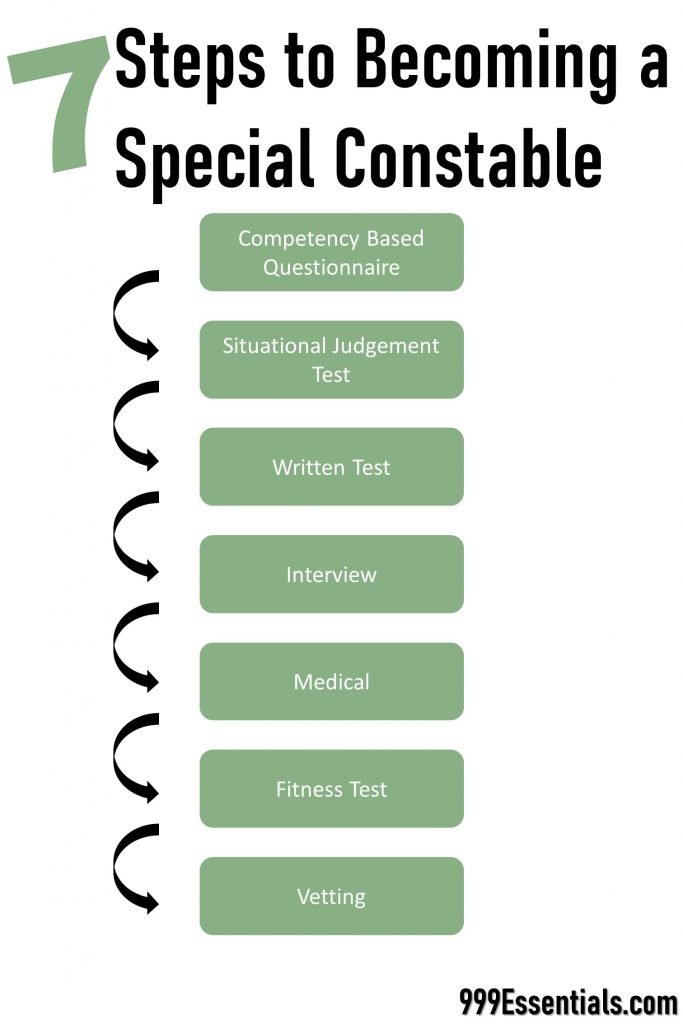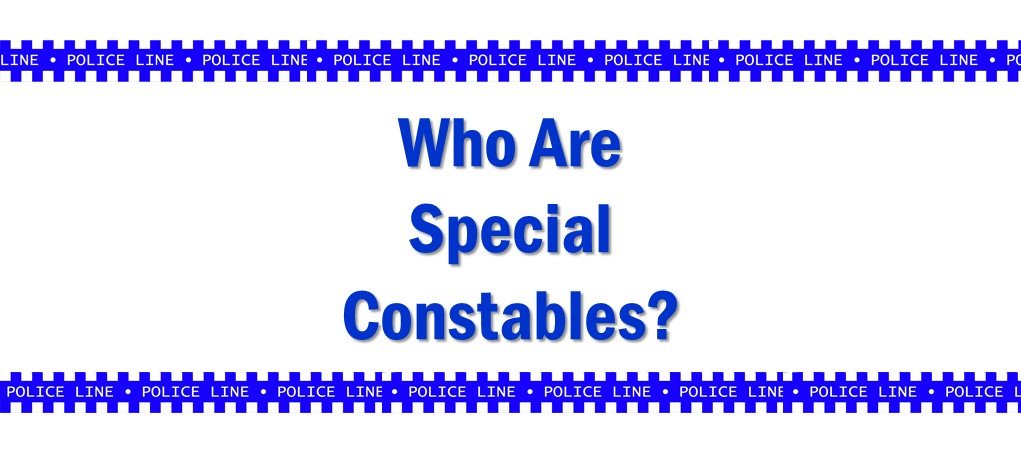What is the role of a Special Constable? Do you have questions about what Special Constables do, what powers they have, or even, how can you become a Special Constable? You’re in the right place! We will take you through the role of a Special Constable, the application process, and what to expect at training school and beyond!
- History of the Special Constabulary
- Why Are Special Constables Important?
- How Many Special Constables Are There?
- Do Special Constables Have The Same Powers As A Police Officer
- What Does A Special Constable Do?
- Check out our Special Constable FAQs here;
- What Training do Special Constables receive?
- What Is The Purpose Of A Police Attestation?
- Do Special Constables Get A Warrant Card?
- Do Special Constables Get Paid?
- What Uniform Do Special Constables Wear?
- How Many Hours Do Special Constables Have To Work?
- If I Join As A Special Constable, Will I Be Expected To Go Out On My Own And Do The Role Of A Police Officer?
- Can Special Constables become specialised in specific areas of Policing?
- Can Special Constables Be Promoted?
- Specials Rank Structure
- Do Special Constables Automatically Become A Police Officer?
- Do You Want To Be A Special Constable?
- Final Thoughts
History of the Special Constabulary
The Special Constabulary can be traced back to at least the 9th century, when members of the public, volunteered and were invested with ‘special powers’ to enforce the law and keep the peace in their own communities.
Parish Constables were introduced under the Statute of Winchester in 1285. These Parish Constables guarded places of significance in town and questioned people who did not abide by their curfews.

The Statute of Winchester was the first piece of legislation that highlighted the importance of the part-time constable, someone from the local community who assists in keeping law and order.
In 1828 the Home Secretary, Robert Peel, known as being the founder of modern-day policing, set up a committee to look at ways to tackle the lawlessness in the country.
In 1829 the Police Act was passed in London which established the first Police Force, this idea spread through the rest of the country.
This Act was refined by the Special Constables Act of 1831 where Justices of the Peace could appoint Special Constables in order to combat lawlessness.
These Constables were unpaid, except for expenses.
The Special Constables Act of 1831 was passed which included allowing local authorities to appoint Special Constables in order to preserve the peace.
In order to preserve the peace, the Specials were given all of the same powers as a regular Police Officer. This was the foundation for the modern-day Special Constabulary.
Why Are Special Constables Important?
Special Constables are an integral part of the police. Due to specials being volunteers, they come from different walks of life, with some having jobs in the private sector, others being students and some being stay at home parents.
This means that all of these people bring diverse life experiences into policing.
These skills are an invaluable supplement to the police force. What is more important is that these people have volunteered to help make the community in which they live a better place.
How Many Special Constables Are There?
As of 2021 there were over 9,000 active Special Constables in England and Wales. Numbers were down from 2020, however, this is not indicative of less interest in the role.
A lot of forces stopped Special Constable recruitment during the pandemic. This was for multiple reasons, but mainly as training officers, were redeployed to frontline duties, and it was not practical to bring more people into a work place, spreading infection rates.
| Rank | 2020 | 2021 | Percentage change (%) |
|---|---|---|---|
| Chief Officer1 | 231 | 236 | 2.2 |
| Superintendent (includes chiefs) | 1,252 | 1,277 | 2.0 |
| Chief Inspector | 1,732 | 1,846 | 6.6 |
| Inspector | 5,654 | 5,941 | 5.1 |
| Sergeant | 18,826 | 19,211 | 2.0 |
| Constable | 101,415 | 106,790 | 5.3 |
| Total police officer ranks | 129,110 | 135,301 | 4.8 |
| Police staff and designated officers | 72,331 | 75,934 | 5.0 |
| Police community support officer | 9,248 | 9,284 | 0.4 |
| Total police workforce | 210,689 | 220,519 | 4.7 |
| Special constabulary | 9,571 | 9,174 | -4.1 |
| Police support volunteers | 8,272 | 8,014 | -3.1 |
Source: Home Office, Workforce Open Data Table
Do Special Constables Have The Same Powers As A Police Officer

Yes.
Simply put, Special Constables have all of the same powers as a ‘regular’ Police Officers.
Special Constables undertake an attestation, at which time, their warranted powers are bestowed upon them.
From the time of attestation, Police Officers and Special Constables have exactly the same powers.
What Does A Special Constable Do?
Special Constables undertake all of the same roles as a regular Police Officers. These generically include;
Keeping The Public Safe
- Assisting at the scene of incidents or accidents – helping control situations, ensuring the public are safe.
- Providing security and crowd control at public events, such as protests or sporting events.
Prevention Of Crime

- Carrying out high-visibility foot patrols to deter criminals.
- Educating businesses and the community about crime and crime reduction strategies
- Talking to school children and public groups, such as Neighbourhood Watch Associations, about crime reduction and community safety.
Tackling Crime & Anti-Social Behaviour
- Tackling anti-social behaviour such as gangs.
- Managing alcohol-related incidents such as public drunkenness.
- Tackling anti-social or criminal use of the roads
Investigating Crime
- Conducting enquiries to gather information to support the investigation of crime.
- Taking part in police and partner agency operations to disrupt and arrest offenders as well as protecting vulnerable people.
Securing Convictions at Court
- Presenting evidence in court to support the justice system in prosecuting offenders.
Check out this article which is a day in the life of a serving PC, he talks us through a day in his life. This should give you an indication of what Police Officers, and by virtue, Special Constables could be expected to do in a shift.
In addition to the above, we have rounded up some of the most common questions that we get asked under the heading, ‘What does a Special Constable do?’
Check out our Special Constable FAQs here;
What Training do Special Constables receive?
Special Constables will undergo a period of training, the same as any Police Officer. This will be a combination of classroom and self-initiated learning.
Training will take place over a period of around 12 weeks, some forces provide this training on a night, others on weekends and some offer elements of the training online.
What Will My Special Constable Training Cover?
Your Specials training will cover a number of different factors in order to prepare you for the role of a Special Constable. This will include;
Assessment methods will be through a variety of means such as role-plays, tests and classroom-based exercises.
You will have a final legislative exam that you will need to pass to be able to progress to the operational element of your learning.
This does not have to scare you though; the exam will only be based on what you have learned over the previous weeks. The exam is not designed to ‘catch you out’.
At the end of your Special Constables training, you will have a passing out parade, which is similar to a graduation ceremony.
What Is The Purpose Of A Police Attestation?
Before being ‘sworn in’ as a Special Constable, and receiving police powers, all police officers including Special Constables must be formally attested before a Justice of the Peace for the force area.
During this ceremony, all officer officers must make the following declaration;’
“I do solemnly and sincerely declare and affirm that I will well and truly serve the Queen in the office of constable, with fairness, integrity, diligence and impartiality, upholding fundamental human rights and according equal respect to all people; and that I will, to the best of my power, cause the peace to be kept and preserved and prevent all offences against people and property; and that while I continue to hold the said office I will to the best of my skill and knowledge discharge all the duties thereof faithfully according to law.“
This is outlined in the Police Reform Act 2002. As you can see there is no difference between the declaration a Police Officer, or a Special Constable take.
Do Special Constables Get A Warrant Card?
As part of the attestation ceremony discussed above, Special Constables will be issued a Warrant Card.
This will be their own Warrant Card. This will be in exactly the same format as all other officer’s warrant cards.
This will be how officers have to identify themselves.

Do Special Constables Get Paid?
Special Constables are voluntary, and as such, they do not get paid.
In some forces, they may be able to claim expenses for travel and out-of-pocket expenses.
If you are applying to become a Special Constable with a Force, you can always ask this question as part of the application process.
What Uniform Do Special Constables Wear?
Special Constables were exactly the same uniform as Police Officers. As a Special Constable, you will be issued the same uniform as a Police Officer. This is likely to consist of;
Just like a ‘regular’ Police Officer, you will not be able to bring your tactical equipment home. You will be able to bring your trousers, tee-shirts, etc home in order to wash them.
How Can You Tell If Somebody Is A Special Constable?
As, we have explained above, from the uniform itself, you cannot tell any difference between a regular Police Officer and a Special Constable.
However, in some forces, Special Constables will have the letters, ‘SC’ above their Force Identification Number (FIN) aka, ‘collar number’ that they wear on their shoulders.
Other forces will have a set number that Special Constable’s collar number starts with, i.e all Special Constable numbers will start with the number ‘9’.
How Many Hours Do Special Constables Have To Work?

Due to the level of training that goes into becoming a Special Constable, most forces require an officer to complete a minimum number of hours a month, this is normally around 16 hours.
This is to ensure that you are keeping your skills up.
These are normally flexible to suit this individual’s availability. i.e if your only free time is on a weekend, you will be able to work then, likewise, if your availability is on a weekday, you will be able to work then.
If you can only do 4 hours this is ok, if you want to do a 12-hour shift, you can too.
Most forces have a system such as Duty Sheet, whereby you can tell it when you are free to work.
Most forces will also advertise specific events when they want people to work. i.e if they have a number of warrants to execute, or there is a specific sporting event or operation which they need staff for.
If I Join As A Special Constable, Will I Be Expected To Go Out On My Own And Do The Role Of A Police Officer?
This is a common question that is asked by prospective Special Constables. They understandably panic that they will become a Special Constable and then be expected to go out on ‘the street’ on their own and do the role of a Police Officer. This is not the case.
Initially, as a Special Constable, you will undergo a period of classroom training.
You will then go out and either be attached to an established team of Special Constables or a team of Police Officers. They will look after you and show you what you need to do.
You will not be allowed out on your own until you are signed off as ‘independent’. This is the same as regular police officers.
Being, ‘independent’, means that you have been deemed to have suitable knowledge and skill to go out and police on your own.
Can Special Constables become specialised in specific areas of Policing?
Every force utilised Special Constables in different ways, however, most forces will allow Special Constables to specialise in a specific area of policing.
When we reached out to the 999 Essentials network, we have drawn up a list of some of the specialist roles that Special Constables volunteer within.
Specialist Roles that Special Constables Volunteer Within
- Public Order Unit
- Marine Unit
- Counter Terrorism
- Road Traffic
- Neighbourhood Policing
- Community Safety
- Community Engagement
- Investigation
- Pro Active Units
- Operational Support
- Warrants Departments
This is not an exhaustive list of specialist roles that Specials can undertake; these were the most common.
Please remember, this may vary by force and is only designed to give you an indication of what may be available to you.
As you can see there are a number of specialist roles that Specials can undertake. Most Specials will be attached (work alongside) a response team or a neighbourhood team initially.
This is where special constables will learn what to do.
Can Special Constables Be Promoted?
There is a rank structure within the Special Constabulary, however, there is no basis in law for this rank structure. As such this does not mean that a Special Sergeant would outrank a Police Constable.
The rank structure is purely for the Special Constabulary itself. Special Sergeants will have the administrative function of looking after a group of Special Constables, so on and so forth.
Furthermore, there are no exams associated with the increase in Special’s rank, unlike Police Officers that have to undertake and pass a legislative exam in order to secure a promotion.

Specials Rank Structure
- Special Sergeant
- Special Inspector
- Special Chief Inspector
- Special Superintendent
- Special Chief Superintendent
- Special Chief Superintendent
- Special Chief Officer
So far, we have gone through the role of the Special Constable, what a Special Constable does, and many frequently asked questions about the role of the Special Constable.
Since the time of originally writing this article, a number of further questions have come into us about Special Constables, we have answered these individually, but have also included the answers below.
Do Special Constables Automatically Become A Police Officer?
Not all Special Constables necessarily want to become Police Officers. Special Constables undertake the role in order to support the community in which they live and/or to provide them will a different experience.
If you do wish to become a Police Officer, becoming a Special Constable will not necessarily guarantee you a role.
Being a Special Constable will give you an insight into the role of a Police Officer, in order to give you the information you need in order to decide whether becoming a Police Officer is for you.
You will still need to go through the application process in order to become a Police Officer, however, being a Special Constable will give you some insight into Policing which may assist you in the application process.
You will also be exposed to a lot of the departments within Police, it may be that you decide that being a Police Officer isn’t for you, but that you would like a Police Staff role.
Do You Want To Be A Special Constable?
If you like what you have read above and are interested in becoming a Special Constable, we will take you through the application process.
Special Constable Application Process
How Old Do I Need To Be In Order To Apply To Become A Special Constable?
You can apply to be a Special Constable if you will have to be at least 18 years of age. There is no upper age limit.
Do I Need To Live In The UK To Be A Special Constable?
You will need to have lived in the UK for the last three years and have indefinite leave to remain in the UK.
What Qualifications Do You Need To Be A Special Constable?
You do not need any specific qualifications in order to be a Special Constable but you will need a good command of the English language and be able to pass a written test.
Do I Need To Be Fit To Be A Special Constable?
You will need a reasonable level of physical and mental health in order to become a Special Constable. Just like a Police Officer, you will have to undertake the Job Related Fitness Test (JRFT), we will go through this further below.
Can I Be A Special Constable If I Have A Criminal Record?
It depends on what your conviction is for and when the conviction is from as to whether you will pass the vetting process in order to become a Police Officer.
Application Process

There is a National Special Constables recruitment process, however, each force may approach the recruitment in a slightly different manner.
As a guide if you are applying to become a Special Constable you are likely to follow the following process;
- Complete a Competency Based Questionnaire (CBQ) – this will likely be online
- Complete a Situational Judgement Test where you will be asked to use your judgement to rate the effectiveness of response options to a number of given scenarios
- Written Test
- Competency Based Interview
- Medical
- Fitness Test
- Vetting
The competency elements of the application process will be based on the Competency Values Framework from the College of Policing.
What Does The Medical Involve?
There will be an overall assessment of your health, including a peak flow test and an eyesight test. A drugs test will also form part of your medical.
The Fitness Test
The Fitness test that you are required to undertake is the same as that of regular Police Officers. For more on what to expect for the job-related fitness test and how to train for the fitness test, check out this article. It will take you through everything you need to know in order to pass.
Final Thoughts
That was a lot of information on what the role of a Special Constable is as well as the application and training process. It is unarguable that the role of the Special Constable is invaluable to modern-day policing.
If you have any further questions on the role of a Special Constable, the application, or the training process, please contact us.



